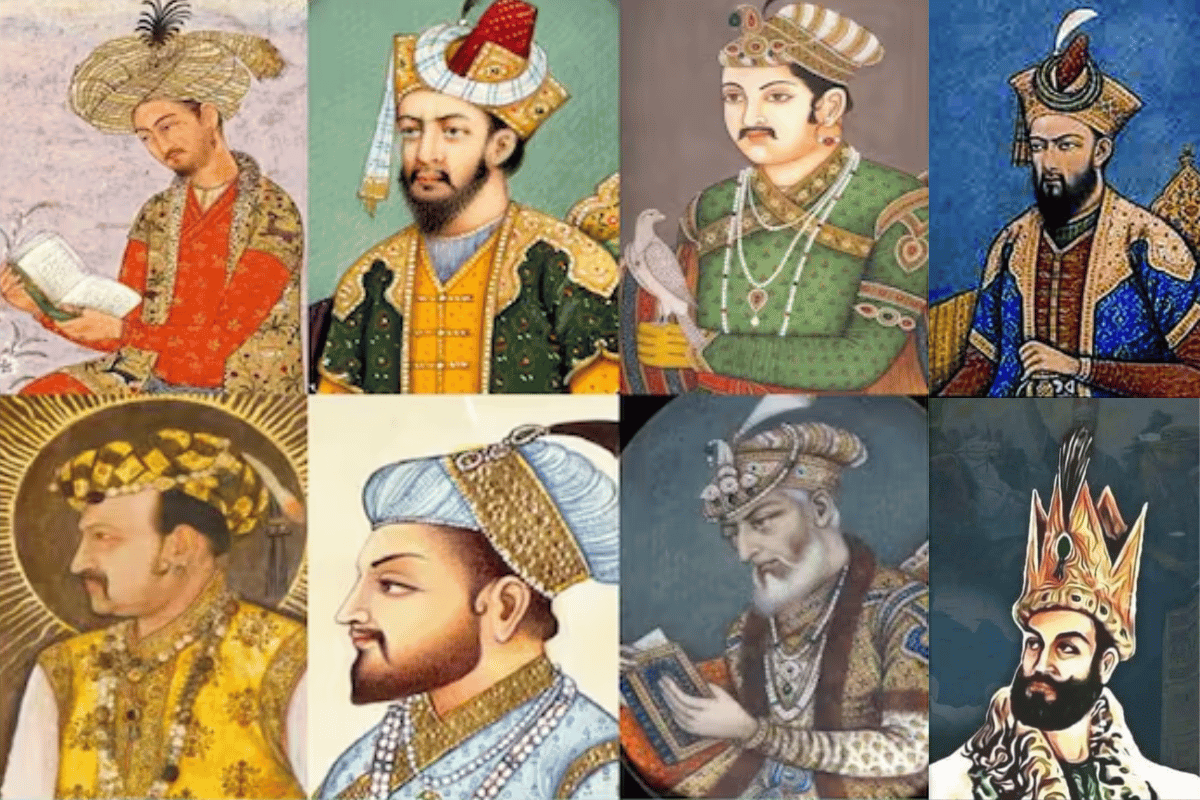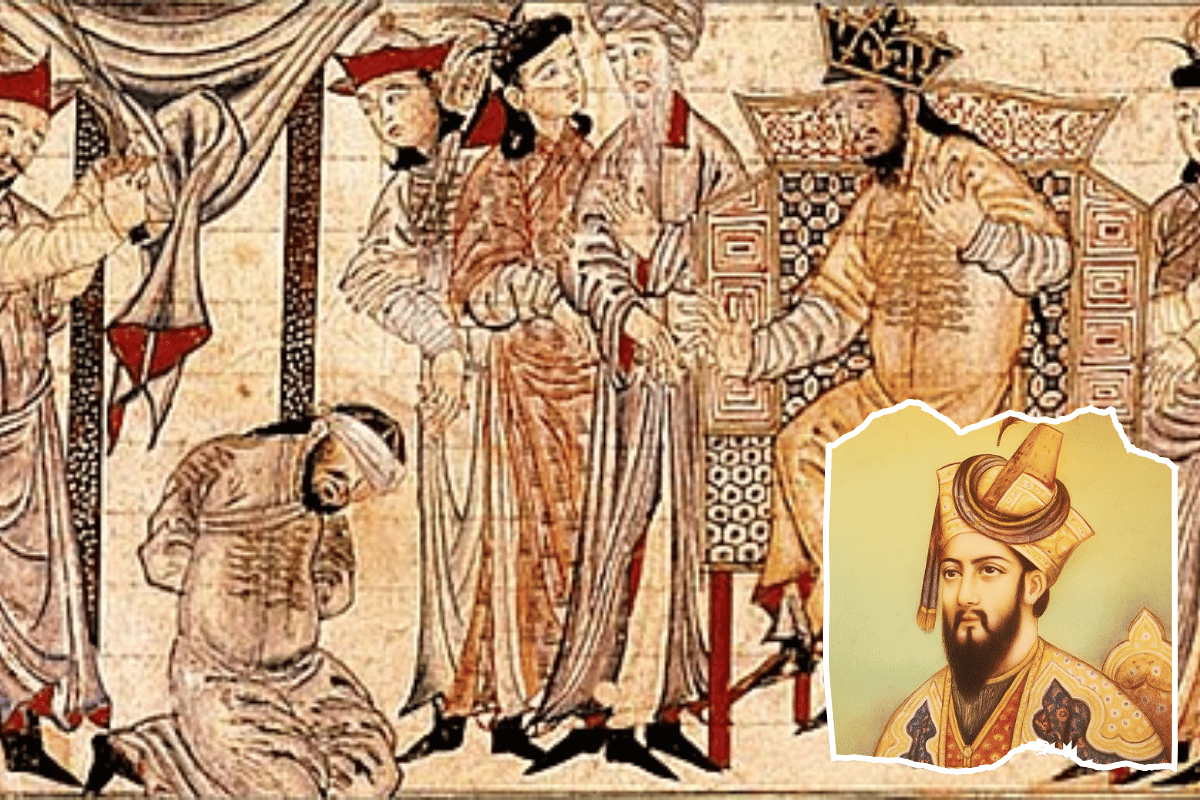
Factsheet on Mohammad Yasin Malik, a Pakistan-backed separatist and Kashmiri terrorist responsible for the exodus of Kashmiri Hindus from the Kashmir Valley, convicted in Indian courts for multiple severe criminal offences including terrorism, waging war against the government of India, financing terrorism, membership in a terrorist organisation, and terrorist acts, among others.

Brief History of Mohammad Yasin Malik
Yasin Malik was born on April 3, 1966, in Srinagar’s downtown Maisuma neighbourhood of Jammu and Kashmir, India.
Malik began his criminal activities at a young age in the 1980s, when he founded the Tala party, which was involved in an attempt to disrupt the 1983 cricket match between India and West Indies at the Sher-e-Kashmir Stadium in Srinagar, as well as staging a protest against the February 11, 1984 execution of Jammu Kashmir Liberation Front (JKLF) founder Mohammad Maqbool Bhat in Delhi’s Tihar Jail.
Malik’s criminal activities increased after his Tala party was renamed Islamic Students League (ISL), which vigorously campaigned for Muslim United Front (MUF) candidates in the 1987 Jammu and Kashmir state assembly elections. He was detained for preservation of law and order for months on multiple occasions.
Malik’s criminal activities increased after his Tala party was renamed Islamic Students League (ISL), which vigorously campaigned for Muslim United Front (MUF) candidates including Mohammad Yousuf Shah in the 1987 Jammu and Kashmir state assembly elections. He was detained for preservation of law and order for months on multiple occasions.
The MUF candidates, including Mohammad Yousuf Shah, were defeated in the elections and shortly after, rumours of rigged elections were propagated. Shah, also known as Syed Sallahuddin, is now the commander of the United Nations proscribed and banned terrorist outfit Hizbul Mujahideen based in Pakistan-occupied Kashmir (PoJK).
Both Shah and Malik were visible figures among many others arrested for sowing public discord in the months following the elections. Malik was among the first section of people to cross the Line of Control (LoC) into Pakistan Occupied Jammu and Kashmir in 1988 for terrorist training in terrorist camps set up by Pakistan.
Within a year, Malik returned to the Kashmir Valley after arms training and indoctrination in Pakistan and joined JKLF as a core member. The JKLF’s core group included Malik, Hameed Sheikh, Ashfaq Wani, and Javed Mir. While Wani was killed in a gunfight with security forces in March 1990, Malik was apprehended in an injured state in August 1990 and imprisoned until May 1994. Sheikh and six other JKLF militants were killed on November 19, 1992, at Ali Kadal in downtown Srinagar, while Mir now leads a separate faction of the JKLF.
Following his release on bail in May 1994, Malik declared a shallow indefinite unilateral ceasefire to continue the nonviolent struggle for Jammu and Kashmir’s so-called “independence” from both India and Pakistan. However, he continued to support terrorism and terrorist acts.
In 1995, Pakistan-based JKLF founder Amanullah Khan deposed Malik as party president. Malik, on the other hand, expelled Khan from the chairmanship and received support from his party colleagues in Pakistan and beyond.
He joined the Hurriyat Conference, a conglomerate of various separatist organisations formed in 1993, but took a cautious approach when the conglomerate split between hardliners and moderates in September 2003.
In 2009, he married British Pakistani woman Mushaal Hussein Mullick, who is 20 years younger than him, and the couple has a daughter, Razia Sultana, who lives in Pakistan with her mother.
During a visit to Pakistan in February 2013, Malik was seen sharing a dais with the chief of the United Nations-designated terrorist organisation Lashkar-e-Taiba, Hafiz Muhammad Saeed, at a protest in Islamabad against the execution of Indian Parliament attack convict and terrorist Afzal Guru.
Malik was apprehended in 2019 by the Indian National Investigation Agency (NIA), the country’s premier investigation agency for terrorism and related crimes. The NIA had earlier in its First Information Report (FIR) stated that Kashmiri separatists received funds from Pakistan, including from Hafiz Saeed of the Lashkar-e-Taiba and Syed Salahuddin of the Hizbul Mujahideen, for activities such as stone-pelting and school burning.
Malik was apprehended in 2019 by the Indian National Investigation Agency (NIA), the country’s premier investigation agency for terrorism and related crimes. The NIA had earlier in its First Information Report (FIR) stated that Kashmiri separatists received funds from Pakistan, including from Hafiz Saeed of the Lashkar-e-Taiba and Syed Salahuddin of the Hizbul Mujahideen, for activities such as stone-pelting and school burning in 2017.
According to the NIA, Malik revealed during interrogation that he was central to the formation of the ‘Joint Resistance Leadership’, which spearheaded the violent agitation in Kashmir in 2016 following the July 2016 killing of Hizbul Mujahideen Terrorist commander Burhan Wani.
The NIA also identified Kashmiri businessman Zahoor Ahmad Shah Watali as a key figure who received funds from Pakistan through its intelligence agency ISI, and the UAE via the hawala system and a number of shell companies. He’d then pass them on to separatist leaders like Yasin Malik and stone-pelting organisers in Kashmir.
Yasin Malik’s home was searched on February 26, 2019, and incriminating material such as documents and electronic devices were seized. These included letterheads of internationally sanctioned terrorist organisations such as Jaish-e-Mohammed and Hizbul Mujahideen.
On April 10, 2019, Yasin Malik was arrested in connection with a cases involving the funding of terrorism and separatist groups in Jammu and Kashmir, India.
In March 2020, a special NIA court in Delhi reviewed the evidence, and ordered the framing of charges against Yasin Malik and others under the stringent UAPA and Indian Penal Code in terrorism funding cases.
Simultaneously, in March 2020, Yasin Malik and six others were charged for the January 25, 1990 attack on Indian Air Force personnel in Rawalpora, Srinagar, under the Terrorist and Disruptive Activities (Prevention) Act (TADA), the Arms Act 1959, and the Ranbir Penal Code.
- Offence: Section 120B of IPC: Punishment of criminal conspiracy
Quantum of Sentence: Imprisonment of 10 years and ₹10,000 fine - Offence: Section 121 of IPC: Waging, or attempting to wage war, or abetting waging of war, against the Government of India
Quantum of Sentence: Life imprisonment - Offence: Section 121A of IPC: Conspiracy to commit offences punishable by section 121
Quantum of Sentence: Imprisonment of 10 years and ₹10,000 fine - Offence: Section 18 of UAPA: Punishment for conspiracy etc.
Quantum of Sentence: Imprisonment of 10 years and ₹10,000 fine - Offence: Section 20 of UAPA: Punishment for being member of terrorist gang or organisation.
Quantum of Sentence: Imprisonment of 10 years and ₹10,000 fine - Offence: Section 38 and 39 of UAPA: Offence relating to membership of a terrorist organisation and Offence relating to support given to a terrorist organisation respectively.
Quantum of Sentence: Imprisonment of 5 years and ₹5,000 fine - Offence: Section 17 of UAPA: Punishment for raising funds for terrorist act.
Quantum of Sentence: Life imprisonment fine ₹10 lakh - Offence: Section 13 of UAPA: Punishment for unlawful activities
Quantum of Sentence: Imprisonment of 5 years - Offence: Section 15 of UAPA: Terrorist act
Quantum of Sentence: Imprisonment of 10 years
On May 19, 2022, after admitting guilt in the terrorism financing case NIA vs Yasin Malik, Malik was convicted of Unlawful Activities Prevention Act (UAPA) various violations as well as conspiracy and sedition offences under the Indian Penal Code (IPC). Subsequently, on May 25, 2022. Yasin Malik was sentenced by a NIA special court in a 2017 terror-funding case as below;
Additional Recorded Criminal Activities by Cases Pending against Mohammad Yasin Malik
According to reports, Yasin Malik is facing over 65 criminal charges. The majority of the charges brought against him are murder, attempted murder, rioting, terrorist acts, terrorist funding and sedition. Most notoriously, Yasin Malik is responsible for the Kashmiri Hindu exodus from their native homeland in Kashmir, involved in the kidnapping of Rubaiya Sayeed, the daughter of then-Union Home Minister Mufti Mohammed Sayeed, as well as the early 1990s murder of four Indian Air Force personnel.
- Case: Illegal border crossings during the 1988
Status: Pending - Case: On December 8, 1989, Rubaiya Sayeed, then 23, the daughter of former Indian Home Minister and Chief Minister of Jammu and Kashmir (J&K) Mufti Mohammad Saeed and sister of former J&K Chief Minister Mehbooba Mufti, was abducted by Jammu Kashmir Liberation Front (JKLF) terrorists while riding in a local minibus returning from the Lal Ded Memorial Women’s hospital to her home in Nowgam at about 3:35 PM. Four JKLF terrorists led by Yasin Malik forced her into the vehicle at gunpoint. The JKLF contacted the local newspaper Kashmir Times the same day, claiming that their members had kidnapped Rubaiya Sayeed and would hold her hostage until the government released Sheikh Abdul Hameed, a JKLF area commander. The incident happened only five days after Saeed was appointed Union Home Minister of India.
Status: In the Rubaiya Sayeed kidnapping case, charges against Yasin Malik and nine others have been framed in a Special Terrorist and Disruptive Activities (Prevention) (TADA) Court in Jammu, Jammu and Kashmir, India. - Case: Three Jammu Kashmir Liberation Front (JKLF) terrorists shot High Court Judge Neelkanth Ganjoo in broad daylight on November 4, 1989, while he was in Hari Singh Street market near the high court in Srinagar. Judge Ganjoo was murdered for his involvement in the Amar Chand murder trial. In August 1968, as a session court judge, he sentenced terrorist Maqbool Bhat to death for the murder of Amar Chand. Yasin Malik admitted to the killing of Neelkanth Ganjoo by JKLF terrorists on a BBC Hard talk interview.
Status: Pending – ‘A Rare BBC Hard Talk Interview Video Of Terrorist Yasin Malik Who Confess & Laugh About Death: Kashmir Pandits’ (youtube.com, 2022) <https://www.youtube.com/watch?v=jDXFL2tcEhM> accessed 26 May 2022 - Case: On January 25, 1990, fourteen Indian Airforce (IAF) officers were waiting for an IAF bus at a bus stop in Rawalpora Chowk when five JKLF terrorists, led by Yasin Malik, opened fire on the unarmed IAF men around 7:30 a.m. with AK-47s and a pistol. Four IAF men were pronounced dead at the scene, while unable to fight back, the remaining 14 fell to the ground. Among those killed were Squadron Leader Ravi Khanna, Corporal DB Singh, Corporal Uday Shankar, and Airman Ajad Ahmed.
Status: In the IAF officer murder case, charges against Yasin Malik have been framed in a Special Terrorist and Disruptive Activities (Prevention) (TADA) Court in Jammu, Jammu and Kashmir, India.









